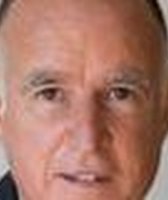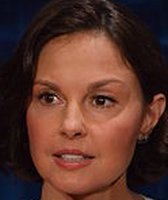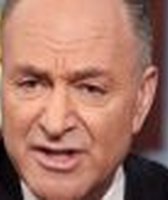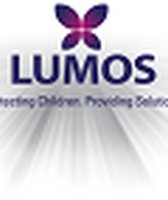Stand up for the facts!
Our only agenda is to publish the truth so you can be an informed participant in democracy.
We need your help.
I would like to contribute
In his first press conference since winning the presidency, Donald Trump vehemently denied unverified opposition research reports that he has been compromised by the Russian government and scolded media organizations that published the information.
"It’s all fake news. It’s phony stuff. It didn’t happen," Trump said.
The night before the press conference, CNN reported that U.S. intelligence chiefs presented a summary of the reports to President Barack Obama and Trump as part of classified briefings on Russian interference in the 2016 presidential election.
The documents allege that Moscow had compromising personal and financial information on Trump. As far as we know, no one in the intelligence community or in the media have been able to confirm the claims. Buzzfeed published them in full, which Trump and his administration admonished as "pathetic."
For the first time, Trump himself acknowledged the finding of the intelligence community that Russia ordered cyberattacks to interfere in the election.
"I think it was Russia, but I think we also get hacked by other countries and other people," he said.
The news conference also featured Trump’s attorney, Sheri Dillon, explaining how he would handle his businesses as president.
Here are highlights from some of Trump’s comments. We’ll be fact-checking some of his statements and updating this report as we complete our work.
"It's very familiar territory, news conferences, because we used to give them on a almost daily basis. ...We stopped giving them because we were getting quite a bit of inaccurate news."
Trump began his press conference with a nod to how media coverage helped him win the election. In addition to being a constant fixture on cable news, Trump held press conferences (in which he also took reporters’ questions) every month, and sometimes more than once a month, until last summer.
He held his last news conference in Florida on July 27, 2016, when Flip-Flopped on whether the federal government should set a minimum wage and invited Russia to hack Clinton and "find the 30,000 emails that are missing."
"They tried to hack the Republican National Committee and they were unable to break through."
We rated this claim Mostly True. According to FBI Director James Comey, there’s no evidence RNC’s current system was "successfully hacked." Russian cyber intruders gained access to some outdated email domains associated with the RNC, but they didn’t release any information they gleaned.
The intelligence agencies haven’t said publicly why the Russians didn’t break into the RNC, though they did target the RNC and the Democratic National Committee with the same techniques.
"Hillary Clinton got the questions to the debate and didn’t report it."
Trump said the hacks during the election were wrong but said it had the upside of revealing information about Clinton. He shrugged off a later question about whether that made them justified.
"But remember this: We talk about the hacking and hacking's bad and it shouldn't be done. But look at the things that were hacked, look at what was learned from that hacking," Trump said.
"That Hillary Clinton got the questions to the debate and didn't report it? That's a horrible thing. That's a horrible thing."
The emails, taken from former Clinton campaign chair John Podesta’s email account and published by Wikileaks, support Trump’s claim.
It’s important to note, however, that this was about a Democratic primary debate, and not the general election. (Trump rarely makes that distinction.)
CNN contributor and Democratic strategist Donna Brazile sent an email to the Clinton camp on March 12, 2016 with the subject line, "From time to time I get the questions in advance," and included a question about the death penalty. The next day, at a CNN presidential town hall between Clinton and primary opponent Sen. Bernie Sanders, Clinton was asked a question by an audience member about the death penalty.
"If you look, this administration created ISIS by leaving at the wrong time."
This is a more tempered version of Trump’s previous Pants on Fire claim that Obama and Clinton "founded ISIS." Experts told PolitiFact that you can reasonably criticize the Obama administration’s withdrawal from Iraq, lack of support to anti-Assad rebels in Syria, and intervention in Libya for contributing to the power of ISIS. But the timeline was set in motion by the Bush administration.
More importantly, ISIS is a terrorist organization created by terrorists.
"I have no loans, I have no dealings" in Russia
Trump was supposed to announce a plan in mid December for handling his conflict-of-interest issues between the presidency and his vast business holdings, but he canceled.
"We could make deals in Russia very easily if we wanted to. I just don't want to because I think that would be accomplished," Trump said. "So I have no loans, no dealings and no current pending deals."
It’s true that Trump has yet to build a hotel or tower in Russia, but he has eyed the Moscow skyline for decades.
We don’t know for sure about the extent of Trump’s business dealings in Russia, because he hasn’t released his tax returns. But his son, Donald Trump Jr., said in a 2008 real estate conference that "Russians make up a pretty disproportionate cross-section of a lot of our assets."
We do know that Trump agreed to host the Miss Universe pageant in Moscow in 2013, a $20 million deal facilitated by a Russian real estate mogul and billionaire Aras Agalarov. (Trump also cameoed in Agalarov’s son’s dance-pop music video). He also made millions selling a 17-bedroom Florida mansion to a Russian billionaire.
"I have a no-conflict situation because I am president."
Trump, and then his lawyer Dillon, said conflict of interest laws do not apply to him but he understands the concerns and will nonetheless resign from the Trump Organization.
"I could actually run my business and run government at the same time. I don't like the way that looks, but I would be able to do that if I wanted to," Trump said.
It’s True that presidents are exempt from the law that says executive branch employees can’t participate in government matters in which they or their immediate family has a financial interest. So Trump does not have any legal obligation to sell his hotels or detach himself from his businesses in anyway.
"You learn very little in a tax return"
Asked if he would release his tax returns to prove he does not have financial interests in Russia, Trump said no, as he has said throughout the campaign, not until they are no longer under audit.
"You learn very little in a tax return," Trump said, referring reporters to his already disclosed financial disclosures.
PolitiFact has consistently ruled this argument False.
Unlike all presidential nominees since 1980, Trump has not released his tax returns, which would offer valuable details on his effective tax rate, the types of taxes he paid, and how much he gave to charity, as well as a more detailed picture of his income-producing assets.
An observer would find valuable information about Trump’s personal financial holdings from his extensive (and legally required) financial-disclosure form. However, experts have told us they consider that a red herring.
The two most obvious pieces of the puzzle missing without Trump’s tax returns are the effective rate of tax he pays on his income, and details about his charitable giving. Paying a low tax rate could be politically embarrassing. And Trump has faced questions about his past charitable giving. (For details, see the ongoing coverage by reporter David Farenthold of the Washington Post.) Tax returns also can give a clearer picture of the candidate’s liquid assets.
"The only one that cares about my tax returns are the reporters."
Trump has repeatedly cited an IRS audit as the reason why he won’t release his tax returns. Plus, he said, no one save the press actually minds.
"I won. I mean, I became president. No, I don’t think they care at all. I don’t think they care at all. I think you care," he said.
That’s False. Several polls, released from August 2016 to the eve of his press conference, show that a majority of Americans think Trump’s tax returns are an important issue or were concerned that he hadn’t released them.
Pew Research Center released a new poll Jan. 10 that showed that close to two-thirds of Americans think the issue is important. The poll was conducted Jan. 4-9 among 1,502 adults with a margin of error of 2.9 percentage points for the total sample.
Sixty percent of the people polled by Pew said Trump has a responsibility to publicly release his tax returns. The numbers do vary broadly depending on political affiliation, however — 38 percent of Republicans or those leaning Republican agree he has a responsibility, compared to 79 percent of Democrats or those leaning to the left.
"Paying for a hotel room is not … an emolument."
Dillon, Trump’s lawyer, said as a sign of good faith, Trump will also donate all profits made from foreign government payment to his hotels to the U.S. Treasury.
The Constitution’s Emoluments Clause, design to preempt external influence, bans government officials from taking gifts or compensation from foreign governments. According to Dillon, it would not apply to hotel profits.
"Paying for a hotel room is not a gift or a present, and has nothing to do with an office," Dillon said. "The Constitution does not require President-elect Trump to do anything here. But, just like with conflicts of interest, he wants to do more than what the Constitution requires."
Dillon’s claim is, at the least, debatable among experts of government ethics.
"If any of Trump’s business arrangements involve the receipt of payments from foreign governments, I believe that he, or his entities from which he receives money, would have to forgo those payments, or he would have to detach from those entities," Kathleen Clark, an expert on legal ethics and a law professor at Washington University in St. Louis, previously told us.
Trump, noted above, has said he will resign from the Trump Organization.
"Some states have over 100 percent increase" in premiums under the Affordable Care Act
Trump repeated his pledge to repeal the Affordable Care Act and replace it within the same day or same week.
"Obamacare is a complete and total disaster," he said at the news conference (read our in-depth coverage of health care under Obama). "It’s imploding as we said. Some states have over 100 percent increase."
While the average premium increase in Arizona rose by 145 percent in 2017, it is the only state a with a triple-digit increase. Alabama saw the second highest increase, 71 percent. On the other end, a few states saw decreases. The average premium increase across all states was 25 percent.
And as we noted in a recent fact-check of Vice President-elect Mike Pence, premiums rose much faster under the eight years of President George W. Bush, before the Affordable Care Act was passed in 2010.
"We saved close to a thousand jobs" with the Carrier deal
Trump touted his deal with United Technologies, which owns Carrier, to keep jobs at a manufacturing plant in Indiana from moving to Mexico.
Carrier had previously planned to move 1,400 jobs to Mexico before the incoming administration intervened. After talks with Trump and Pence, the governor of Indiana, Carrier agreed to keep about 800 jobs at its Indianapolis plant.
Under the deal, Indiana will give the company $7 million in tax incentives over a decade and Carrier agreed to invest $16 million keeping the company in the state. The company also said it will move forward with its plans to close another factor in Huntington, Ind.
While many workers celebrated saving their jobs, free-market capitalists balked, including Trump ally and Republican Sarah Palin, who described the deal as "crony capitalism." Plus, hundreds of jobs at the Carrier plant would not be spared from export.
And Carrier's parent company, United Technologies, said it will continue with previously announced plans to close a factory in Huntington, Ind., and move its 700 jobs to Mexico.
"There will be a major border tax on these companies that are leaving and getting away with murder."
Tweaking one of his top campaign promises, Trump sounded a clear message to companies moving manufacturing and jobs abroad: "Not going to happen."
It’s unclear what Trump means by a "major border tax," but he repeatedly floated the idea of imposing tariffs on goods made abroad.
While he would have the authority under a variety of trade statues to do so, experts previously warned us of a few possible outcomes: higher consumer costs, higher production costs, stock market volatility, higher interest rates, damaged reputation abroad for going back on trade agreements and a trade war.
"96 million really wanting a job and they can't get. You know that story. That’s the real number."
A longtime skeptic of the official jobs figures, Trump claimed the "real number" is 96 million people without jobs, which would correspond to an unemployment rate of 37.8 percent out of potential workforce of 255 million (everyone age 16 and up).
The latest report from the Bureau of Labor Statistics, meanwhile, says there were 7.5 million people unemployed in December, or an unemployment rate of 4.7 percent.
During the election, Trump repeatedly said the unemployment rate could be 42 percent, and received two Pants on Fire ratings for that claim.
To get to a rate that high, you’d have to count college and high school students, stay-at-home parents, job-training participants, those with disabilities, those with part-time jobs and senior citizens. The highest credible number we could calculate was 15.6 percent.
Our Sources
See fact-checks.









































